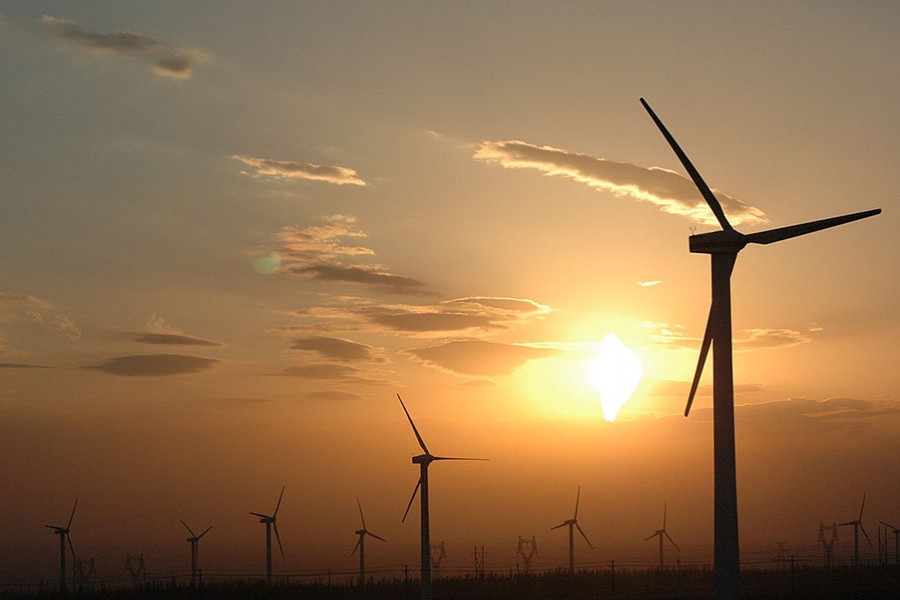It is very heartening to know that a recent survey by the American National Renewable Energy Laboratory has found the potential of producing wind power in Bangladesh to be quite bright. It arrived at this conclusion after completion of a wind resource mapping for the country. Based on an analysis of average wind flow in nine places, the average wind speed has been found to be between 5.0 and 6.0 metres per second, which is very much suitable for commercial production of wind power. Wind power can be produced if the wind speed is at least 2.3 to 2.5 metres per second. Besides, the production technology has now been improved so much that a single turbine can produce 5.0 megawatt (MW) of electricity. The production cost is also declining gradually.
Wind provides a clean, pollution-free green energy and its generation can be a sustainable solution to the energy crisis in Bangladesh. The use of fossil fuel is set to go down gradually in the coming days across the globe. Consequently more attention should now be paid to renewable sources of energy by the policymakers of Bangladesh. There is no fuel cost for producing wind power. The production cost would decline further if hybrid projects were taken up by combining solar and diesel with wind. If the global consumption pattern of electricity is considered, it is found that wind power is highly popular especially in the European countries. Even neighbouring India has taken up innumerable projects for producing 32 thousand MW of wind power. Although the length of the coastal belt in Bangladesh is 580 kilometres and the coastal areas account for almost 20 per cent of its total land area, opportunities for producing wind power here have not been tapped yet. Weathermen claim that the flow of wind in the southern regions of Bangladesh is quite good during eight months of the year from March to October. Some places of northern, north-eastern and eastern Bangladesh have also been found to hold promise for generating wind electricity.
Bangladesh currently has only two wind-powered plants -- one at Muhurir Char of Feni produces a meagre 0.9 MW, while the other at Kutubdia of Cox's Bazaar produces only 1.0 MW. A few contracts have also been signed by the Power Development Board for setting up wind power plants having combined generation capacity of up to 260 MW, but there has not been much progress in their implementation. Besides, the renewable energy target set by the government requires production of 1,370 MW of wind power by the year 2021, which does not appear feasible at the moment.
The high population density of Bangladesh alongside its rising economic growth rate during recent years can be viewed as a robust base for the growth of energy market in Bangladesh. Economies of scale can also be easily reached, given the high energy demand in both short and long terms. Besides, the ambitious plans of the government on the implementation of renewable energy projects as well as support extended by the Asian Development Bank (ADB) and the World Bank can be viewed as assets for moving forward with wind-power projects. But the lack of substantial policy incentives at the moment for renewable energy as well as absence of a comprehensive legal-cum-regulatory framework for the sector is wielding negative influences on the wind energy market. The government should wake up to the current reality and take appropriate measures for harnessing the potential of wind power.


